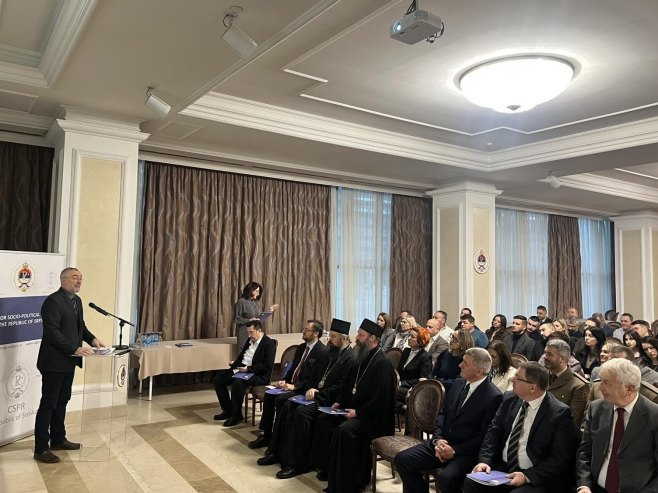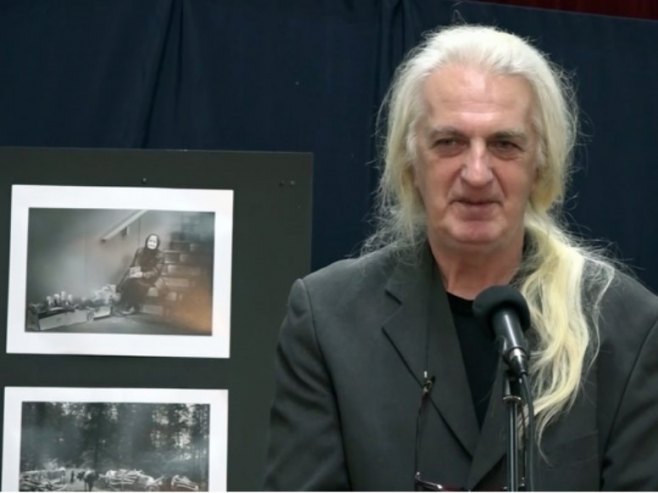For Republika Srpska, this year, 2024, has been challenging and difficult, but most importantly, we have survived. The defining feature of the year was certainly the U.S. sanctions on domestic companies, which ultimately affected ordinary workers who were innocent, said the Prime Minister of Republika Srpska, Radovan Višković, in an interview with “Glas Srpske.” He discussed the pressing issues the Republic faced in the past year.
Višković noted that he is one of the few who believe that replacing management in public companies does not necessarily improve the situation. On the contrary, it often rewards the management.
He also commented on the debate surrounding the minimum wage, emphasizing that it is the duty of trade unions and employers to address this issue, not the Prime Minister.
- “It is their responsibility to those they represent. Why should I take on that task? I am not paid for it—they are,” said Višković, expressing hope that the U.S. Ambassador to BiH, Michael Murphy, will soon leave the country, along with the problems he brought to Republika Srpska.
Glas: What kind of economic year can Srpska expect? Could it be worse than this one?
Višković: Based on current assessments, it should be better than the previous year, but many things do not depend on us. If global peace is maintained and tensions subside, along with improvements in the European economy, Republika Srpska can also expect better days. Otherwise, we should be content if we remain at the current level. That’s the reality.
We need to survive these challenging times, which are not the result of our mistakes, and wait for better days. After rain comes sunshine, and I hope that sunshine will come soon.
First, we experienced the pandemic, which I wouldn’t wish on anyone, and then, just as we thought better days were ahead, the war in Ukraine erupted. I believe some geopolitical changes will occur after January 20, especially since Donald Trump, the newly elected U.S. president, has announced hundreds of laws he will sign on that date.
What particularly pleases me is his announcement to ban gender ideology—there will no longer be ‘it,’ but rather ‘he’ and ‘she,’ man, woman, son, daughter, and family.
When the President of the U.S. says this—especially in America, the cradle of gender ideology—stopping it at the source will also ease pressure on us. Numerous NGOs, funded by dirty money, interfere with our families, religion, traditions, and culture. Worse yet, some people have sold themselves for that money, promoting these principles.
Because of this fact alone, I want to believe that things will change. Bosnia and Herzegovina doesn’t have a problem with America but with certain individuals. With Trump’s arrival, they will become history—whether in a month, two, or three. They may still address global issues but won’t meddle in personal affairs as they do now, and that’s something I want to believe.
Glas: How would you describe this past year?
Višković: Challenging, difficult, but most importantly, we survived. In these turbulent times and under pressure on Republika Srpska—from sanctions to bans—even our most profitable industries were targeted by sanctioning specific companies.
Close to 1,000 highly paid workers, mostly from the IT sector, lost their jobs and livelihoods through no fault of their own.
So, what are we talking about in the 21st century? What human rights and freedoms, what democracy?
People’s rights to life were simply revoked by taking away their jobs and incomes. This was also directed at the media.
I must express some dissatisfaction with the media community, which should have been more united in condemning this.
The idea that “it doesn’t concern me” is dangerous because what happens to someone today can happen to you tomorrow.
Media organizations in BiH should have raised their voices more in defense of journalists and their profession because it was their colleagues and friends losing jobs.
This event will define 2024 in history—not sanctions against officials but against workers who should never have been targeted.
Glas: This year has definitely been marked by U.S. sanctions on officials and companies in Srpska. Banks closed accounts of blacklisted companies despite authorities stating they had no legal right to do so. What is your opinion on this?
Višković: Fear is stronger than legal principles. Bankers were summoned to the U.S. embassy and subtly threatened: “If you don’t comply, we’ll target you.”
Understandably, people feared for their businesses and institutions. In the early days, we understood the bankers’ position, but as time passed, we began taking measures through the Banking Agency.
Rumors are circulating about new sanctions, but banks now claim they will no longer close accounts.
It took over six months for them to realize that their actions had no legal basis.
Glas: With U.S. Ambassador Michael Murphy expected to leave BiH soon, can we expect fewer sanctions on businesses and individuals from Srpska?
Višković: Whether it’s January or later, we’ll see. He should have left by now but hasn’t. Some fear he might stay until June, which is the worst-case scenario.
Everyone’s reign eventually ends, including his.
It would be best for him to leave soon, enjoy his retirement, and let us take responsibility for our lives.
We are smart and capable enough to care for our citizens without tutors, colonizers, or protectors.
Neither the illegitimate Christian Schmidt, the OHR, nor foreign judges in the Constitutional Court should be here.
BiH can only recover when its elected representatives take responsibility for their citizens. Until then, BiH will remain trapped in foreign influence and face ongoing problems.
Glas: The end of every year brings discussions about the minimum wage. Social partners never seem to agree, so is there any chance of an increase next year?
Višković: Negotiations will continue, and I won’t stop pressuring employers and unions.
The government is always ready to talk. If they schedule a meeting for New Year’s Eve, we’ll show up.
I’m tired of everyone hiding behind the government, especially the Prime Minister.
They avoid agreements to preserve their comfort.
Whatever they decide, the government will sign off. They are responsible for representing their members, not me.
Glas: Public companies have faced poor management and political interference for years. Can we expect improvements?
Višković: They will have to improve—or collapse.
Public companies must focus on self-improvement instead of relying on the government.
We’ve formed a supervisory unit under my office, and the 20 largest companies are under review.
It’s time for accountability.
Management changes are not enough; people must be held accountable for past decisions.
We’ll no longer tolerate incompetence, arrogance, or mismanagement.
It’s time to clean up. Companies like Ugljevik need to take responsibility for their operations instead of expecting the government to bail them out.
We’re committed to oversight, and public companies must adapt or fail.
s
Source: Glas Srpske









